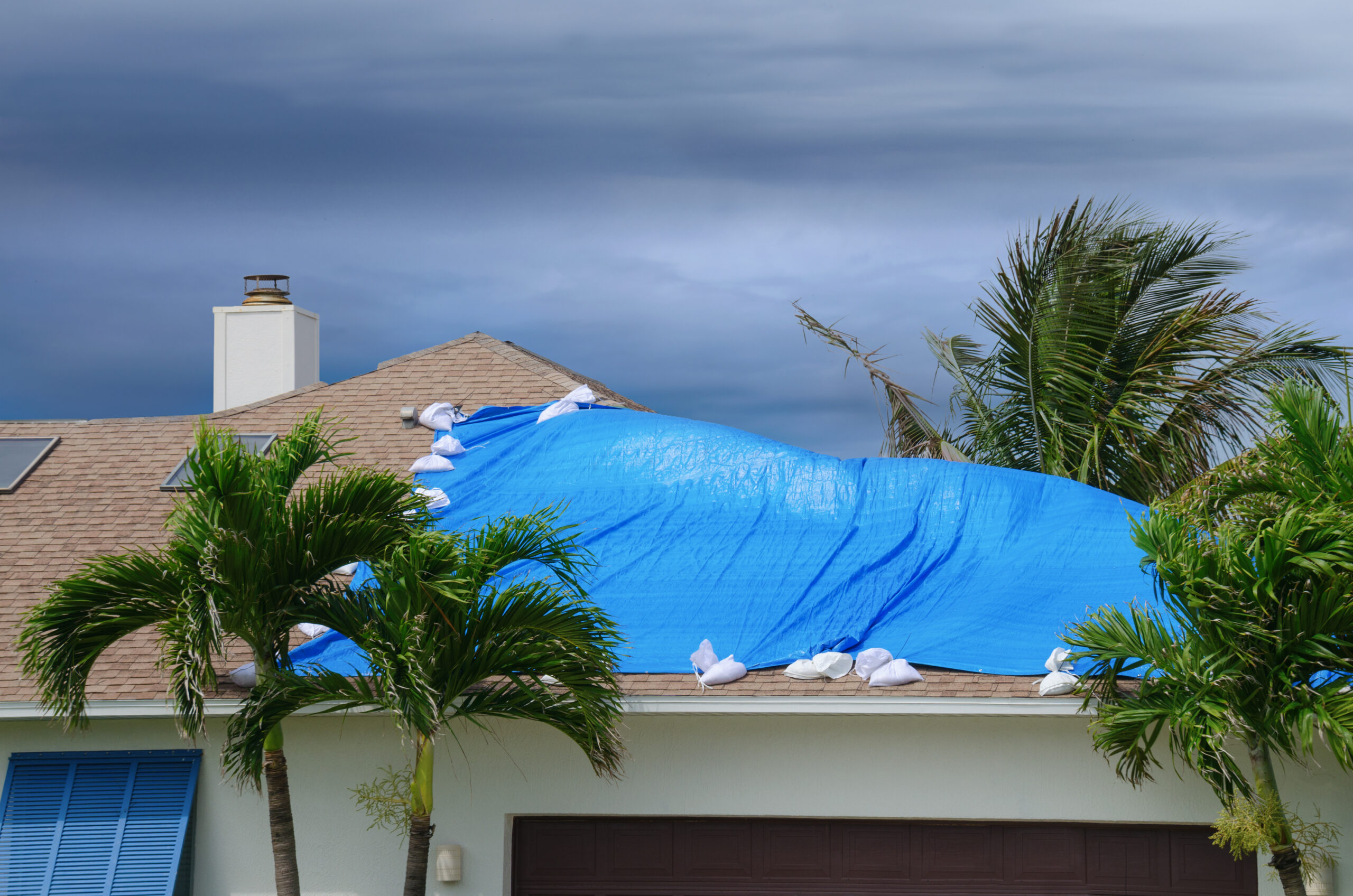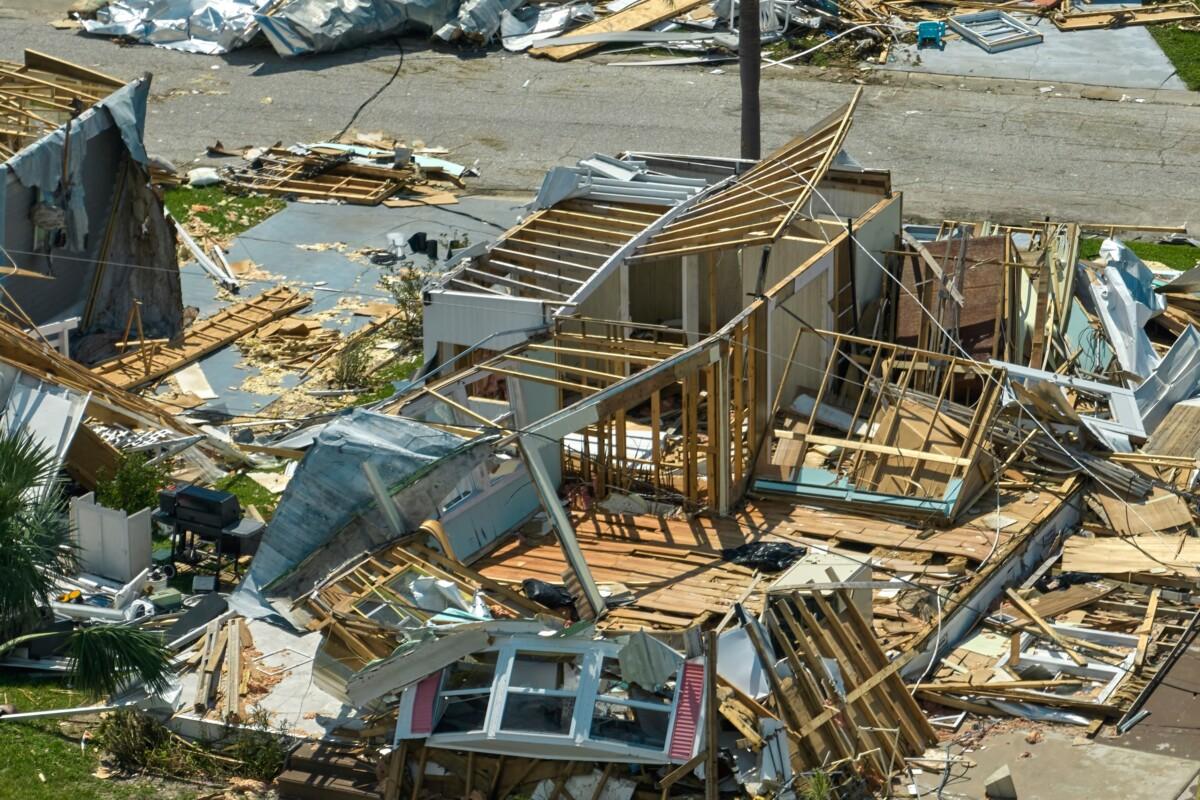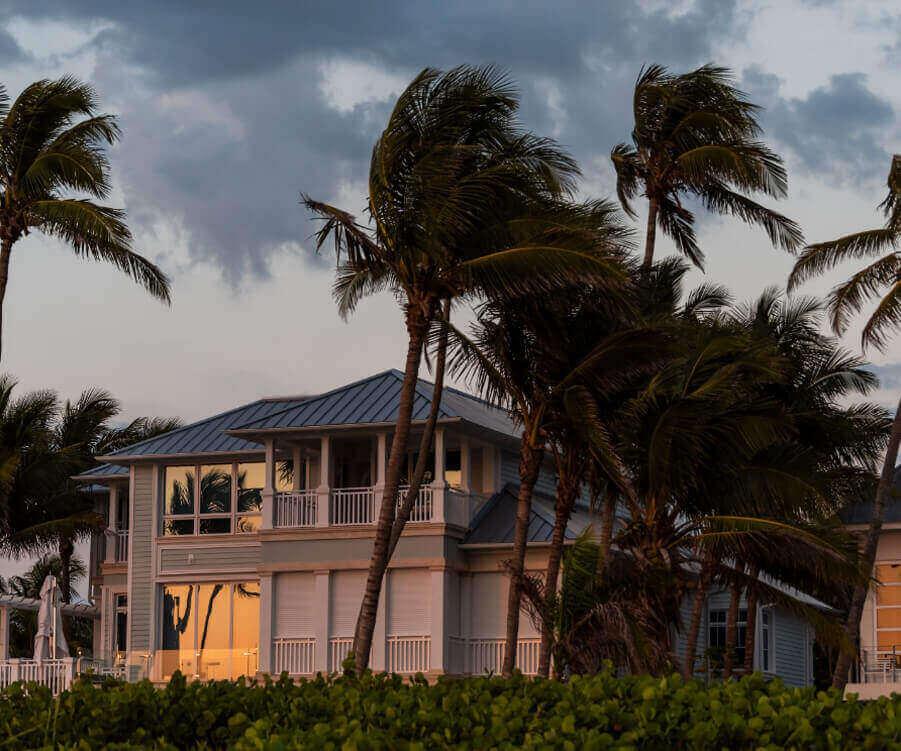Our Public Adjusters Can Help With All Types Of Tornado Property Damage
Trust Capital Adjusting Services with Your Tornado Insurance Claims
Dealing with an insurance claim after a tornado can be frustrating. We have all seen scenes of the devastation after a tornado strikes, but the TV cameras rarely stick around to capture the stories of how people rebuild their lives in the wake of a devastating storm. As tornados and other intense storms become increasingly frequent, however, it is more important than ever to understand the options available to you when storm damage strikes your home.

Insurance companies have a financial incentive to pay you less than you are entitled to. Experienced tornado and storm claim adjusters have seen all the tactics insurance companies use to minimize payouts, and they know what to do to speed up the claims process and get you the maximum settlement. This has become even more important as insurance companies continue to implement changes that limit your ability to recover what you are owed.
What Is Tornado Insurance?
There is no specific “tornado insurance.” However, if you live in a tornado-prone area like West Virginia, it is recommended to combine several types of insurance policies to ensure comprehensive coverage when a tornado strikes:
- Homeowner’s Insurance Policy: This provides protection from heavy winds, including those resulting from tornadoes. Your policy may have a windstorm or tornado deductible requiring you to pay a certain amount out-of-pocket before your coverage kicks in.
- Flood Insurance: Essential for covering any flooding that results from a tornado. Flood insurance policies cover both the building structure and the contents of your home. Given that flood insurance policies do not take effect until 30 days after purchase, it’s crucial to buy them well in advance.
- Windstorm Insurance (if available): This covers wind damage from tornadoes. If you have windstorm insurance, all wind damage should be claimed through this policy, not your homeowner’s policy.
The bottom line is that tornadoes bring severe wind and water damage, requiring a combination of policies to protect you from both. Delaying the purchase of flood insurance until a tornado is imminent can leave you unprotected, as these policies have a 30-day waiting period.
Tornado and Storm Damage
Tornadoes can cause extensive damage through a chain reaction of events. Documenting this damage requires understanding the various ways a tornado can impact your property:
- Wind and rain damage the roof, potentially leading to interior water damage if the roof is breached.
- Damage to the exterior, including windows, doors, siding, and landscaping.
- Interior damage from flooding or wind and rain due to broken windows or a torn roof.
- Damage to equipment like HVAC units or pool equipment.
- Damage from loss of public utilities, such as freezer leaks.
- Mold growth and sewage backups.
- Vehicle or boat damage.
If your home becomes uninhabitable due to tornado damage, you may be reimbursed for hotel stays and meals in addition to repair expenses.
Tornado Damage Dos and Don’ts
DOS
- Speak to a tornado and storm public adjuster immediately and follow their advice.
- Secure the residence.
- Create an inventory of all personal belongings.
- Document the losses related to your claim.
- Take video and photographic evidence of damage to your home or damaged items.
- Keep all receipts or any other proof of purchase for every storm-related expense.
DON’TS
- Do not enter your home until it has been secured and you are sure it is safe.
- Do not face your insurance company alone.
- Do not throw away receipts or any other documentation of your tornado and storm damage.
By following these guidelines and understanding the importance of insurance coverage, you can better protect yourself and your property from the devastating effects of tornadoes. If you need assistance, a tornado damage public adjuster from Capital Adjusting Services is here to help you navigate the claims process and ensure you receive the compensation you deserve.

Tornado Preparedness Tips from a Public Adjuster
- Understand Tornado Risks: Check if you live in a tornado-prone area and assess your property’s vulnerability to tornadoes, high winds, and storm surges.
- Create an Emergency Contact List: Include local emergency services, hospitals, evacuation centers, and insurance companies.
- Assemble an Emergency Kit: Pack essential supplies such as non-perishable food, water, medications, and a battery-powered weather radio.
- Develop a Tornado Response Plan: Plan safe shelter locations, including areas to protect pets and elderly family members.
- Reinforce Your Property: To minimize tornado damage, strengthen your home by securing windows, doors, and roof structures.
Offices Throughout the East Coast We Are Licensed in These States
- Georgia
- Indiana
- Iowa
- Maryland
- Michigan
- Minnesota
- New Jersey
- North Carolina
- Ohio
- Pennsylvania
- Puerto Rico
- South Carolina
- Virginia
- Washington, DC
- West Virginia



